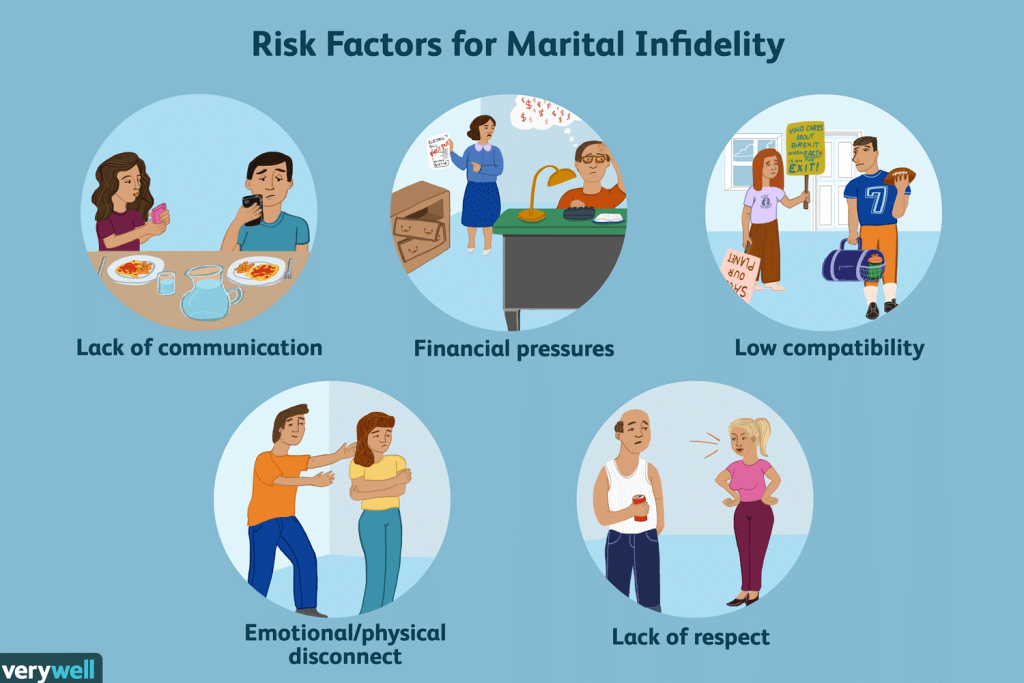Infidelity in a relationship can have profound and lasting psychological effects on both the betrayed and the betrayer. It’s a deeply emotional experience that can shake the very foundation of trust and intimacy in a partnership. In this article, we will delve into the long-term psychological effects of cheating, exploring topics such as post traumatic infidelity syndrome (PTIS) and the complex reasons behind why people cheat on those they love.
Introduction
Infidelity is a challenging topic to address, but it’s essential to understand its long-term psychological effects on individuals and relationships. Cheating can lead to emotional scars that persist long after the act itself.
Understanding the Impact of Infidelity
Infidelity can shatter trust and lead to a host of negative emotions, including anger, sadness, and betrayal. It’s crucial to recognize that these feelings can have lasting repercussions on one’s mental and emotional well-being.
Post Traumatic Infidelity Syndrome (PTIS)

PTIS is a term used to describe the profound psychological trauma experienced by those who have been cheated on. Symptoms can include intrusive thoughts, anxiety, depression, and a pervasive fear of future infidelity. PTIS can persist for years if not addressed.
Emotional Fallout for the Betrayed
The betrayed partner often experiences a rollercoaster of emotions, including shock, anger, and profound sadness. These emotions can lead to long-term psychological issues such as trust issues, self-esteem problems, and difficulty in future relationships.
Guilt and Shame for the Betrayer
The person who cheated is not immune to psychological consequences. Guilt and shame can eat away at their self-esteem, causing emotional distress. Understanding the impact of their actions on their partner can lead to remorse and long-term guilt.
Loss of Trust in Future Relationships
Infidelity can erode one’s ability to trust others in future relationships. The fear of being hurt again can be a significant barrier to forming deep emotional connections.
Rebuilding Trust and Healing
Healing from the psychological effects of cheating is possible, but it takes time and effort from both partners. Effective communication, therapy, and a commitment to rebuilding trust are crucial steps in the healing process.
This will help you understand the question, why do people cheat on people they love?
Understanding the motivations behind infidelity is complex. It can be driven by a variety of factors, including dissatisfaction in the current relationship, the desire for novelty, or personal insecurities. Exploring these reasons can help prevent future infidelity.
The Role of Communication in Preventing Infidelity

Open and honest communication is key to preventing infidelity. By addressing issues and concerns within the relationship, partners can work together to strengthen their bond and reduce the risk of cheating.
Conclusion
The long-term psychological effects of cheating are significant, impacting both the betrayed and the betrayer. It’s essential to acknowledge the pain and trauma associated with infidelity and seek ways to heal and rebuild trust. Understanding the complex reasons behind cheating can also be instrumental in preventing future betrayals and fostering healthier relationships.
FAQs
- Can a relationship survive infidelity?
- Yes, with effort, communication, and therapy, many couples can rebuild their relationship after infidelity.
- How long do the psychological effects of infidelity last?
- The duration varies from person to person, but for some, it can last for years without proper healing and support.
- Is PTIS a recognized psychological condition?
- While not an official diagnosis, PTIS is a term used by therapists to describe the psychological trauma experienced by the betrayed partner.
- What can I do to prevent infidelity in my relationship?
- Open communication, addressing issues promptly, and fostering trust are key preventive measures.
- Can therapy help individuals and couples recover from infidelity?
- Yes, therapy can provide a safe space for healing, communication, and rebuilding trust in the aftermath of infidelity.


 Home
Home








